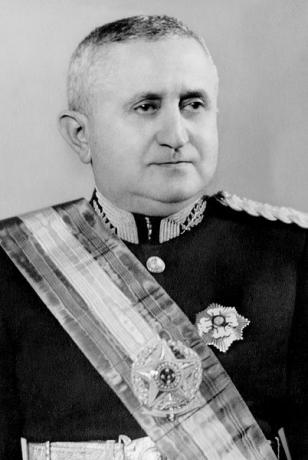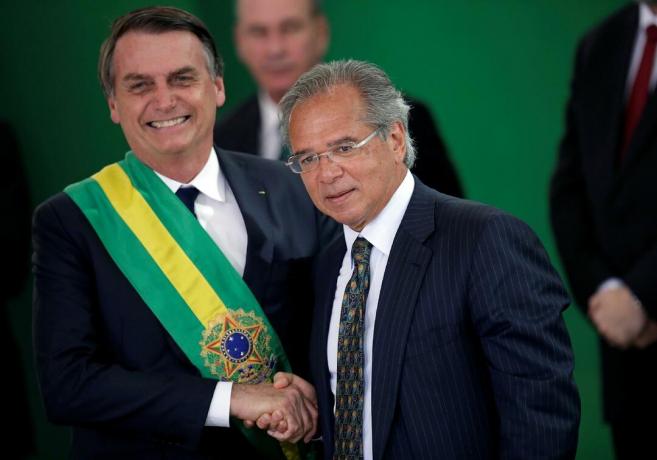First president elected by direct vote at the end of the Estado Novo, the government of Eurico Gaspar Dutra it was marked by the persecution of communists and proximity to the United States.
Dutra government
Dutra's election took place on December 2, 1945. Candidate for the Social Democratic Party (PSD) in coalition with the Brazilian Labor Party (PTB), his vice-president was Nereu Ramos.
Upon taking office, one of his main responsibilities was to promulgate a new Constitution, to replace the one granted by Getúlio Vargas in 1937. The promulgation of the new Magna Carta took place in 1946.
The main points of this Constitution were:
- Restoration of direct elections for president, governors and mayors, but senators and deputies and councilors were still indirectly elected;
- Ensuring the full defense of the accused person;
- Extinction of the death penalty;
- Guarantee of individual freedoms;
- Restriction of censorship;
- Freedom of religion and worship.
Despite this, the government established itself with a highly conservative policy, marked, among other things, by a break with the Soviet Union and a rapprochement with the United States.
Furthermore, due to the prohibition of the Communist Party, which made it illegal, many of its members were persecuted, in addition to the removal of the mandates of the party's parliamentarians.
It also closed all unions, and many union representatives who opposed the government were arrested. In the same way, it is from that time the creation of the Superior War School, whose objective was the formation of military officers. The ban on gambling is yet another milestone of the Dutra government.
In relation to the economy, one of the main actions was the institution of the SALTE plan, which had the purpose of promoting advances and improvements in Health, Food, Transport and Energy. However, for not getting the necessary funding, the project did not come to fruition.
- Free Online Inclusive Education Course
- Free Online Toy Library and Learning Course
- Free Online Math Games Course in Early Childhood Education
- Free Online Pedagogical Cultural Workshops Course
With regard to infrastructure works, he built the highway that connects São Paulo to Rio de Janeiro, which is now named after him. In addition to the highway that connects Bahia to Rio de Janeiro.
The installation of the São Francisco Electric Company and the Petroleum Statute were also under the responsibility of the Dutra government, with the objective of building refineries and purchasing oil tankers.
In 1951, Cristiano Machado, who was the candidate supported by Eurico Gaspar Dutra, lost the elections to Getúlio Vargas, who returned to power to exercise a new term, this time, elected by vote popular.
Who was Eurico Gaspar Dutra
Born in Cuiabá on May 18, 1883, Eurico Gaspar Dutra was the 14th president in office in Brazil. From an early age he received military training, going first to the Preparatory and Tactical School of Rio Pardo, in Rio Grande do Sul. And then, in 1903, for the Porto Alegre War School. Finally, in 1904, he went to the Praia Vermelha Military School, in Rio de Janeiro.

During the 1920s he participated in the repression of the tenentista movement, acting in combat against the Copacabana Fort Revolt, in Rio de Janeiro, and later in the Paulista Revolution, of 1924.
His proximity to Vargas, which will be very important in the future, began in 1932, when he fought against the constitutionalist movement that was in opposition to the federal government. In addition, he played an outstanding role in the repression of the Communist Intentona, in 1935.
Because of these and other achievements, in 1936 he definitively assumed the post of War Minister in the government of Getúlio Vargas. In this post, one of the highlights was the preparation of the Brazilian Expeditionary Force (FEB), which worked in the Second World War alongside the Triple Alliance, even though he defended alignment with the Axis countries.
After the end of the war, with the Vargas government already weakened, Dutra was nominated by the opposition to run for president. When a military coup took Getúlio Vargas from power and ended the dictatorship, the support received guaranteed his election.
He died in Rio de Janeiro aged 91, on June 11, 1974.
The password has been sent to your email.


